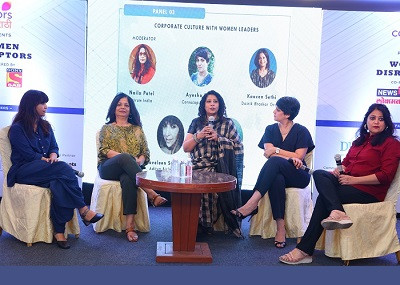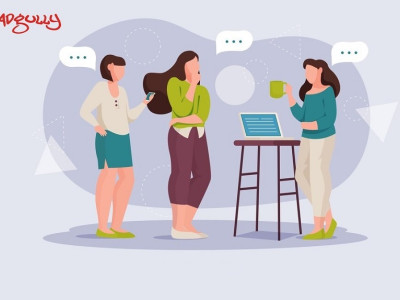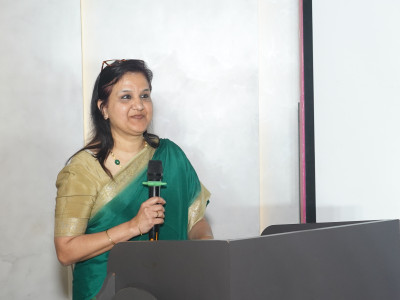On disrupting corporate culture with a woman’s touch & some jugaad
Women leaders bring their own unique touch to the corporate that they lead. With the growing number of women leaders in the industry today, understanding the ‘Corporate Culture with Women Leaders’ has become important. Adgully’s seminal event – ‘Women Disruptors Summit & Awards – turned the spotlight on women super-achievers leading from the front.
The panellists included Ayesha Desai, Co-founder, Cornucopia Concepts; Kaacon Sethi, Chief Marketing Officer, Dainik Bhaskar Group; Loveleen Sahrawat, Head of Brand, Aditya Birla Capital; and Pallavi Chopra, Head of Marketing, redBus. Naila Patel, Executive Creative Director, Mirum India, was the moderator.
At the outset, Naila Patel remarked, “All of us are a package of everything and we’ would like to bring that forward.”
According to Loveleen Sahrawat, empathy is the most important aspect of a woman leader. “It is quite natural to us and it is intuitive to how we behave and how we practice team leadership,” she added. Sahrawat, however, also said that sometimes empathy could be taken for granted, especially in moments where power needs to be practiced. “I’ve noticed women leaders prefer to practice empathy which is often not the right thing,” she said.
On the positive side, Sahrawat saw a tremendous amount of EQ along with IQ, which, again, could be both positive and negative, “because we play out EQ so beautifully in an environment where everyone is either negotiating power or practicing data, we tend to paint ourselves in corners as the soft emotional types.”
Adding further, she observed, “I don’t think women are better or worse leaders. We are just different from the men in the workplace. I don’t think we cling to our strengths too often. A lot of times women leaders are under pressure to ape the men and the culture in the workplace. Therefore, I think it will take a little time before we come into our own and be confident about the traits we bring to the table and practice them more confidently.”
Here, Patel remarked, “Indian jugaad is being celebrated globally in the corporate world,” before going on to ask the panel members to share their stories of jugaad that they bring to their workplace.
Pallavi Chopra’s straightforward answer was, “I think the only jugaad that matters is ‘hard work’. The mind knows no gender. If you are putting in the hard work, you’re courageous and are playing to your strengths.”
On the other hand, Ayesha Desai opined, “In an ideal world, we wouldn’t need jugaad. In a country like India, where there are so many people with different backgrounds and huge cultural disparities, I don’t see us not using jugaad. The concept of jugaad doesn’t really exist in any other country.”
Continuing further, Desai admitted, “Women entrepreneurs like me use jugaad in every step of the way. I would dress and introduce myself according to the neighbourhood I am going into for my NGO work. In a Muslim neighbourhood, I would introduce myself as Ayesha and it would open doors for me. In a Hindu neighbourhood, I would introduce myself using my surname. This would help me with amazing results. You do what has to be done with high integrity.”
At the same time, she noted that sometimes jugaad got a negative connotation. But, with honesty and high level of integrity, one could get the job done.
To the question on whether women in power were uncomfortable with the power, Kaacon Sethi noted, “Power means being able to make a change happen without having to explain it to yourself or other people. We should be able to enjoy what we are getting. It is important to understand who you are and realise what you are doing and enjoying yourself along the way. It is important to look at things positively and make a difference where you are. Making a change in your life will then help drive change in others’ lives.”


















Share
Facebook
YouTube
Tweet
Twitter
LinkedIn